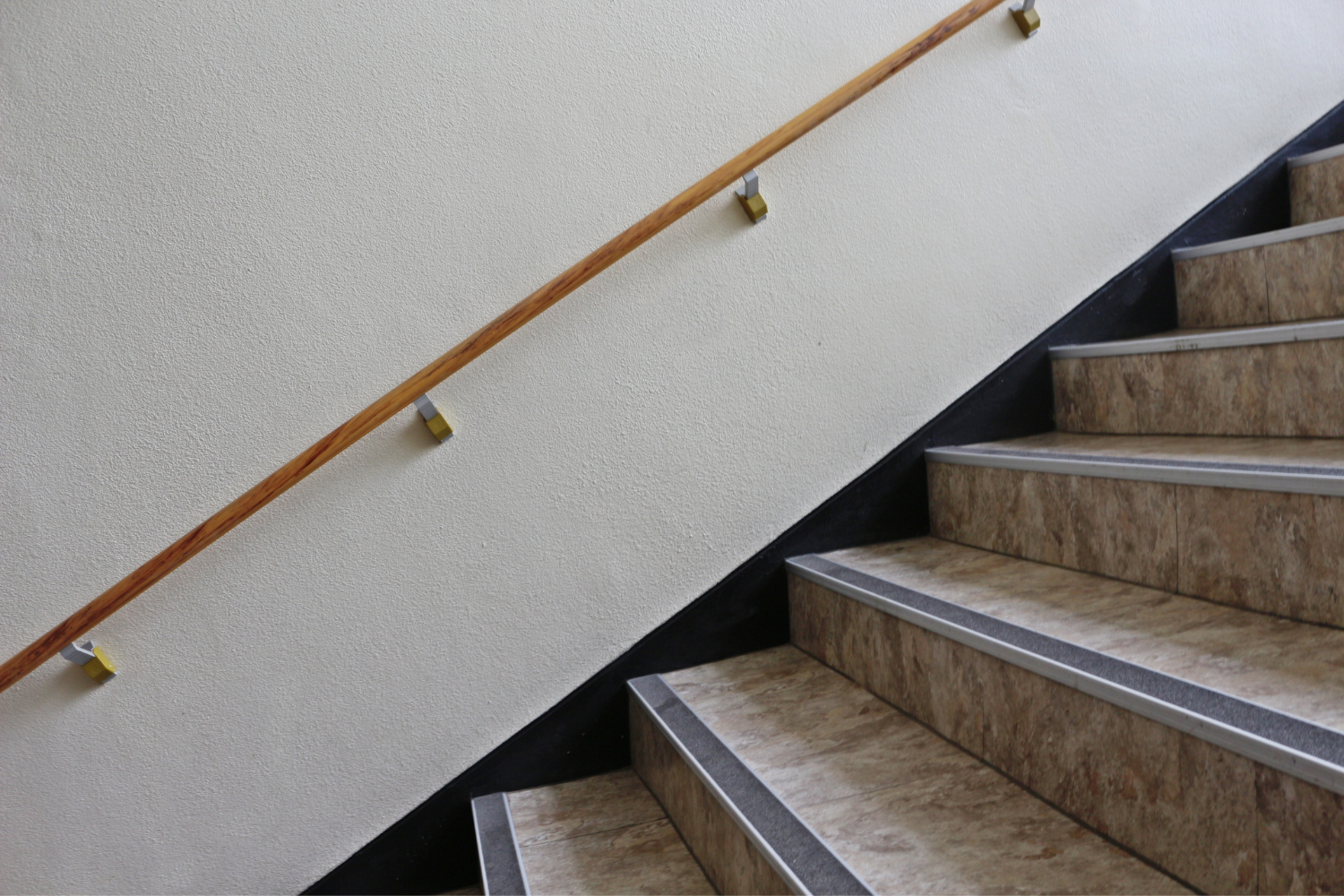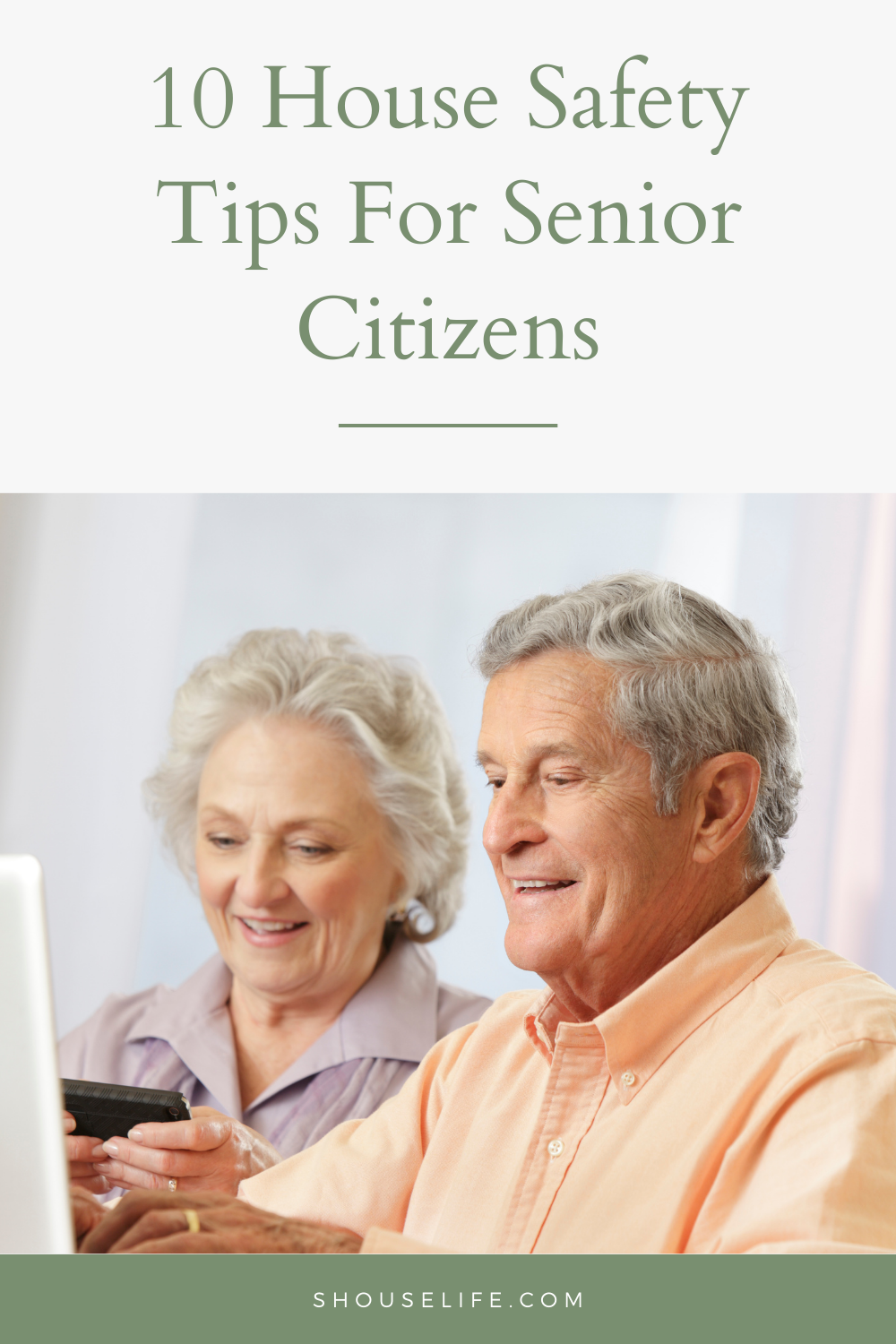While our family home had been safe enough for a passel of kids, I quickly discovered it just wasn’t safe enough for the changing needs of our elderly parents. Keeping one’s parents in their home means taking a closer look at the different ways that a home could be made safer. These 10 tips worked for our parents and may work for yours as well:
Contents
- 1. Decluttering
- 2. Eliminate throw rugs
- 3. Brighten up the house
- 4. Install grab bars where needed
- 5. Purchase nonskid bath mats
- 6. Installing handrails on all staircases
- 7. Install smoke alarms
- 8. Beef up the security
- 9. Buy a portable phone module or Medic Alert Phone
- 10. Install a wheelchair ramp to the outside
1. Decluttering
It’s hard to part with a lifetime of furniture and whatnots, yet unfortunately, a cluttered house poses a tripping hazard for senior citizens who are a little unsteady on their feet. Decluttering means moving out some furniture and opening up the pathways and hallways so that rooms can be navigated safely and without fear of falling.
2. Eliminate throw rugs
Throw rugs can slip, slide, and trip an unsuspecting person. Small rugs can also impede a walker or cane from moving across the floor. If your elderly parents have throw rugs throughout the house, it’s probably safest to remove these from their home altogether.
3. Brighten up the house
Our vision often diminishes with age, and rooms that may appear bright to one person can seem dark to a senior citizen. If your parents have 40-watt bulbs in your house to lower costs, replacing them with higher wattage energy-saving bulbs can provide better lighting while continuing to save them money.
4. Install grab bars where needed
Most accidents happen in the bathroom and installing grab bars near the commode and bathtub will help a senior citizen keep his balance. Grab bars may also be helpful in halls and at the top of a staircase.
5. Purchase nonskid bath mats
Bathtubs and shower stalls are slippery when wet. Large, nonskid bath mats can prevent an accidental fall in the bathtub or shower stall.
6. Installing handrails on all staircases

Older homes weren’t always built with handrails, which are necessary to provide a senior citizen with some added support while climbing up and downstairs. If your parents’ home doesn’t have handrails, plan on installing them every place there’s a step.
7. Install smoke alarms
Modern building code calls for smoke alarms in all the bedrooms, in the kitchen, and in the halls. If your parents do not have enough smoke alarms, install some extras as soon as possible.
8. Beef up the security
If your parents do not have deadbolt locks, it’s a wise idea to install these on all exterior doors. This is also a good time to check the windows for broken latches and determine if the entire house can be secured properly.
9. Buy a portable phone module or Medic Alert Phone
For senior citizens without cell phones, a portable phone is a must. Portable phones fit nicely into pockets and can be carried throughout the house or outdoors, where they can be used in case of a fall. Another alternative is the portable Medic Alert Phone, a pendant phone that can be worn around the neck.
10. Install a wheelchair ramp to the outside
Homes that are multilevel or built above grade are difficult to exit with a wheelchair. If one of your parents has difficulty walking, then you should plan on installing a wheelchair ramp as soon as possible. Wheelchair ramps should comply with ADA (American Disabilities Act) standards to ensure that they are safe.




